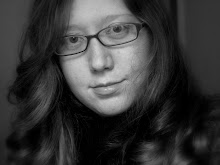A week into the second semester and I can already tell things are going to be a lot different that in the fall. My schedule is a lot less intense as far as work load which is really nice. That is, in part, due to a class I am taking about prayer. We have no reading! It is actually quite an amazing class and I thank God for what I am learning in it.
My favorite class will probably be the class on Christianity and the Postmodern world. I love to take what I have learned and make unexpected connections with it. Last week I read a book by Frederick Nietzsche. He is a philosopher from the late 19th century. His big idea (one of them anyway) is to base morality on "the will to power". Everything everyone does, he argues, should be based on the motivation to gain power. He hates Christianity because its central claims command us to not think of ourselves first but help those in need. If you are more interested (which I doubt many of you are) just shoot me an email and I'll try to explain it better.
Anyway - so I was pondering this whole "will to power" concept and what that would look like. Nietzsche himself really wasn't able to live out this theory because he was very ill most of his life and frail. Part of me wonders if that is why he is so obsessed with power and strength - because he resented his illness and desired physical power. Just a theory.
Anyway, as I was thinking about it, I decided to watch an episode of the show Heroes. (I ended up watching every episode of Heroes this weekend...oops!) The show is about these people who have genetic mutations that give them powers (a lot like x-men only without the costumes). One character in particular is the main villain. He is driven by motivation to be special and unique, but most importantly - to be powerful. He kills other special humans and takes their power. I realized that this character could possibly be classified as an example of Nietzsche's "uber mensch." Which is someone who acts on their will to power. Interesting that the only person I saw exhibit those qualities was the villain.
In a decidedly postmodern society and Nietzsche as the figurative father of postmoderism, I found it very interesting to see his theory in a villainous light. Since the show Heroes is so popular, perhaps society as a whole isn't ready to give up some sense of objective morality. So, perhaps watching all of those episodes wasn't such a waste of time - it helped me to understand one of the great philosophers of history (great in the sense of capacity, not in the sense of morality.)
On a side note: It's about time that people in New England were humbled a little bit. It's just not fair to have so much athletic ability living in one area.
California
11 months ago




1 comment:
Kate -
can you send me your address? I would love to have a weekend to come visit you sometime. Not sure when, but sometime. Anyways - send me your 411 when you get a chance!
Miss you - STacy
Post a Comment